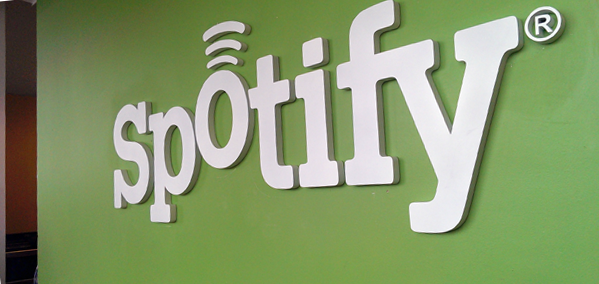Streaming music service Spotify is consistently doubling the amount of revenue it brings in per year, according to regulatory documents filed in Sweden by its holding company, Spotify Technology.
The documents show that the company generated $577 million in 2012 compared to $236 million during the previous year. But before you start patting the company on the back, its worth noting that its net loss (amount of money it has to spend) also for 2012 also rose to $78.04 million compared to a $60.4 million in 2011. That said, Spotify has massive expenses right now, which may make some people wonder if the company will every be able to generate a significant profit. The same can be said about the publicly traded competitor Pandora, which is also struggling to stay profitable.
Spotify provides on-demand streaming music service to various markets across the globe. It’s revenue comes from its free ad-supported service as well as its ad-free premium monthly subscription service. The media company currently has 20 million active listeners and 6 million paying subscribers, which is nearly double the number of listeners/customers it had a year ago.
Most of that user growth can be attributed to Spotify’s expansion into new territories, and that could explain why the company’s net loss is higher. Also, Spotify spends about 70 percent of all its revenue on music licensing, which understandably increase every time people listen to a song. And Spotify isn’t even finished its expensive expansion, either. Back in April, Spotify rolled out service to eight new markets, including Hong Kong, Malaysia, Singapore, and Mexico.
To really get a sense of whether Spotify can prove that music services are a profitable business, we’ll probably have to wait another year.
Via Reuters
VentureBeat's mission is to be a digital town square for technical decision-makers to gain knowledge about transformative enterprise technology and transact. Learn More

